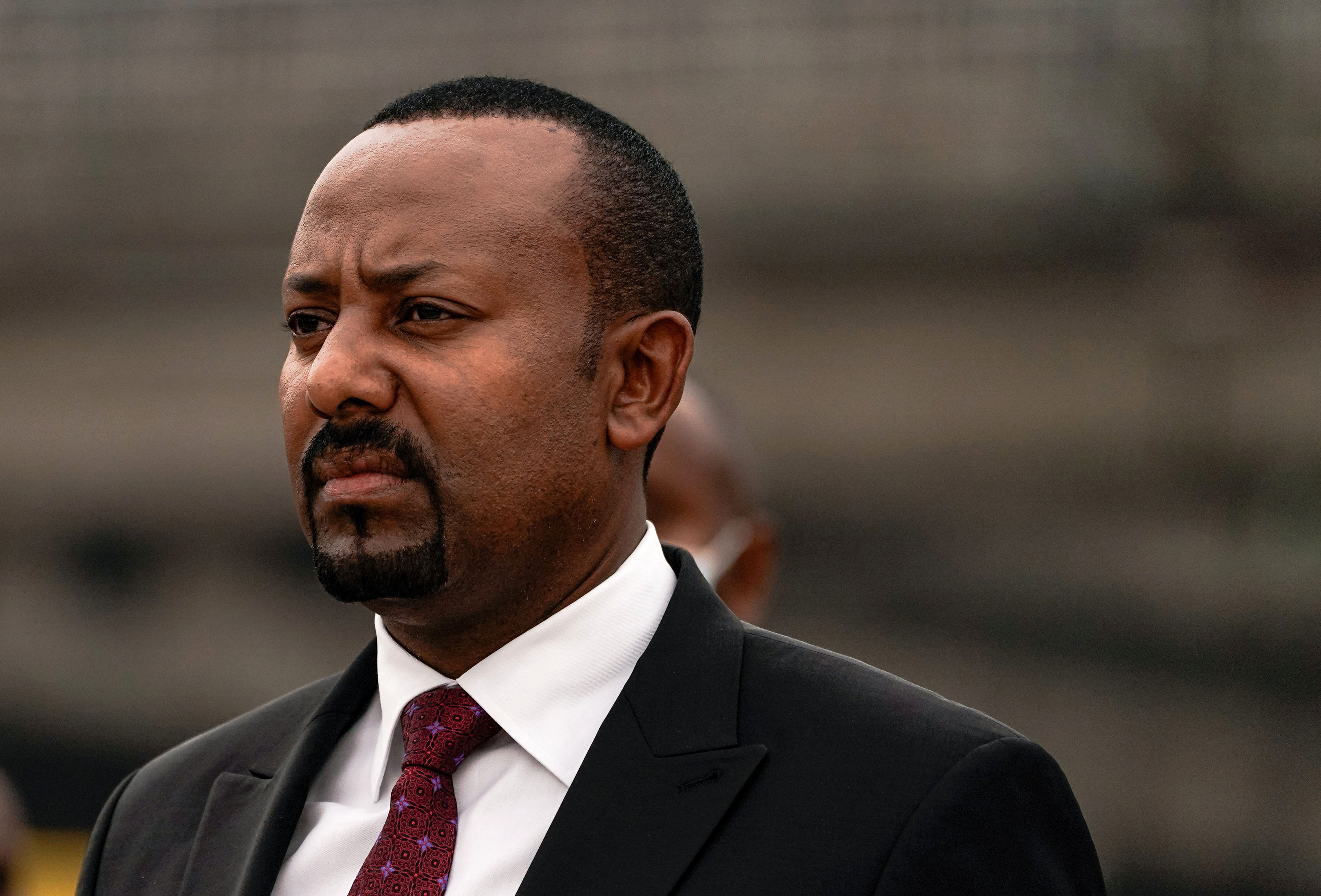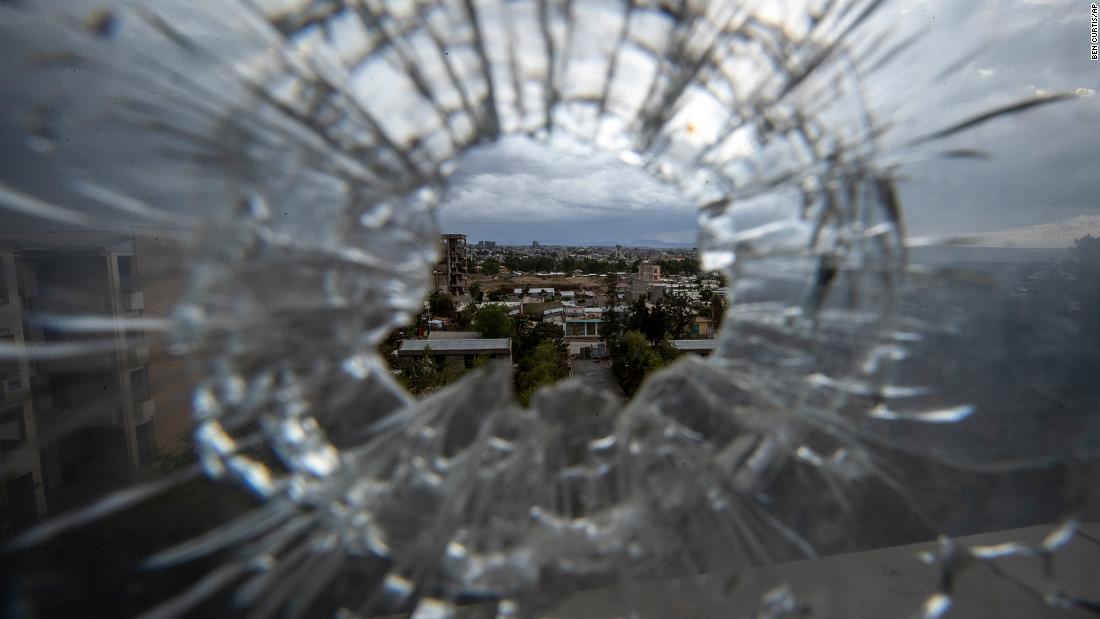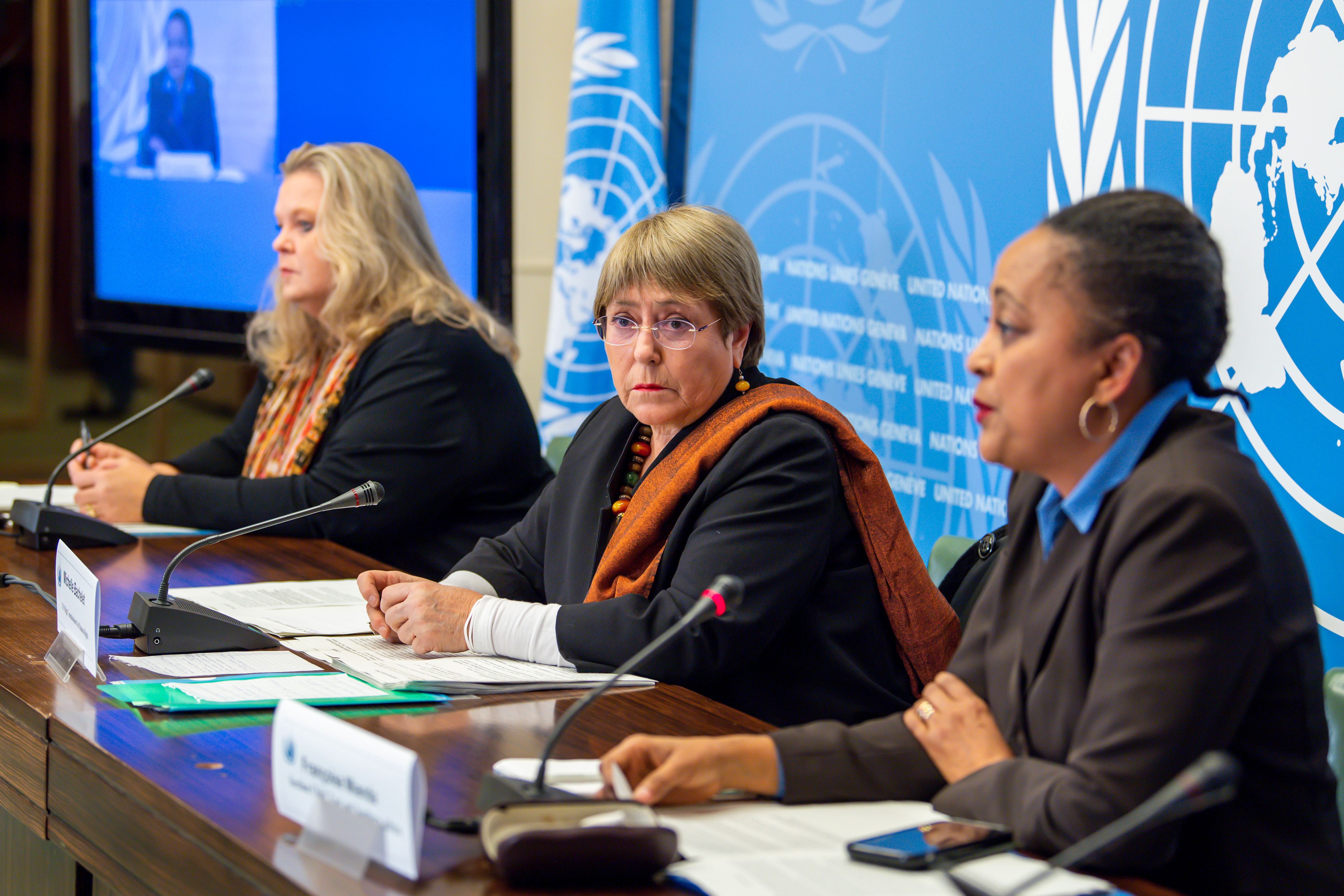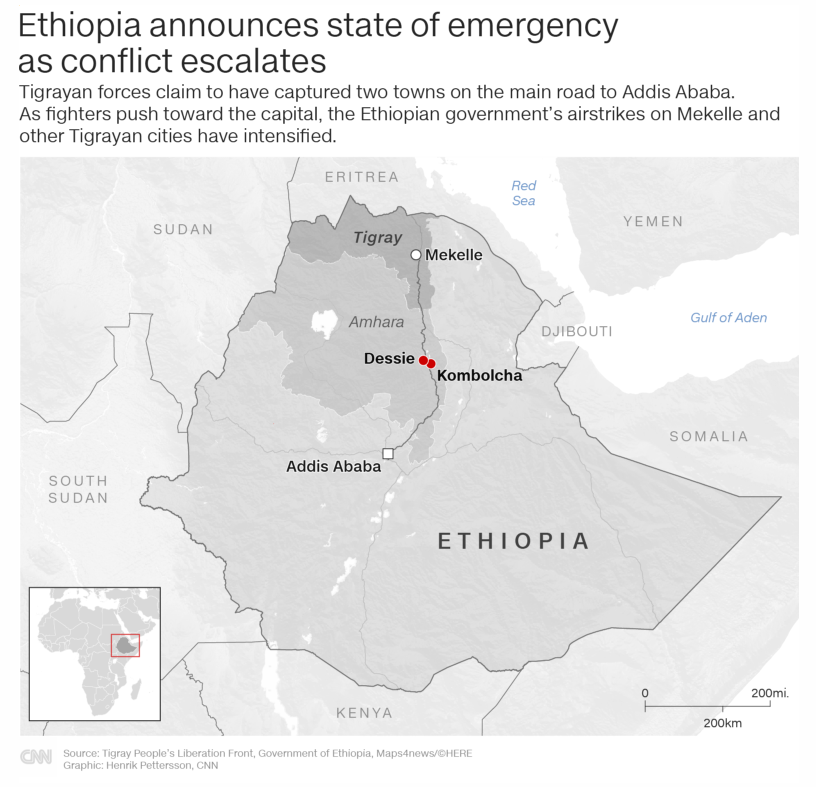
Facebook has removed a post by Ethiopian Prime Minister Abiy Ahmed for inciting violence, after he called on citizens to take up arms and fight armed rebels advancing on the capital Addis Ababa.
"Our people should march ... with any weapon and resources they have to defend, repulse and bury the terrorist TPLF," Abiy said in a Facebook post Sunday, referring to Tigray's former ruling party, the Tigray People's Liberation Front.
An armed group fighting under the banner of the TPLF, known as the Tigray Defense Force (TDF), has joined forces with the Oromo Liberation Army (OLA) in their push to the capital.
A spokesperson from the newly coined Meta Company said in a statement that it was notified of Abiy's post for violating Facebook politics on inciting violence.
“As the ongoing conflict in Ethiopia intensifies, we are committed to helping keep people safe and preventing online and offline harm through our platforms," the spokesperson said in a statement.
"We were made aware of a post by Ethiopia’s Prime Minister and removed this for violating our policies against inciting and supporting violence. At Meta, we remove content from individuals or organizations that violates our Community Standards, no matter who they are."
The removal comes after criticisms that Facebook hasn't done enough to police hate speech and inflammatory content on its platform in Ethiopia.
Facebook's checkered track-record on Ethiopia:
The social media giant ranks Ethiopia in its highest priority tier for countries at risk of conflict, but internal documents obtained by CNN last month revealed that Facebook's moderation efforts were no match for the flood of inflammatory content on its platform.
The documents are among dozens of disclosures made to the US Securities and Exchange Commission (SEC) and provided to Congress in redacted form by Facebook whistleblower Frances Haugen's legal counsel. A consortium of 17 US news organizations, including CNN, has reviewed the redacted versions received by Congress. Haugen said one of her core motivations for gathering the internal documents was bringing to light "how badly Facebook is handling places like Ethiopia."
They show employees warning managers about how Facebook was being used by "problematic actors," including states and foreign organizations, to spread hate speech and content inciting violence in Ethiopia, where its user base is large and growing. The documents also indicate that the company has, in many cases, failed to adequately scale up staff or add local language resources to protect people in these places.
A Facebook spokesperson told CNN in October that the company has been "actively focused on Ethiopia," and, over the past two years, has invested in adding more staff with local expertise, including in local languages, to improve its proactive detection of harmful content in the country. The spokesperson also said that the company had improved its reporting tools for people in Ethiopia to make it faster and easier for them to report content they believe violates its community standards.
Read more here:


